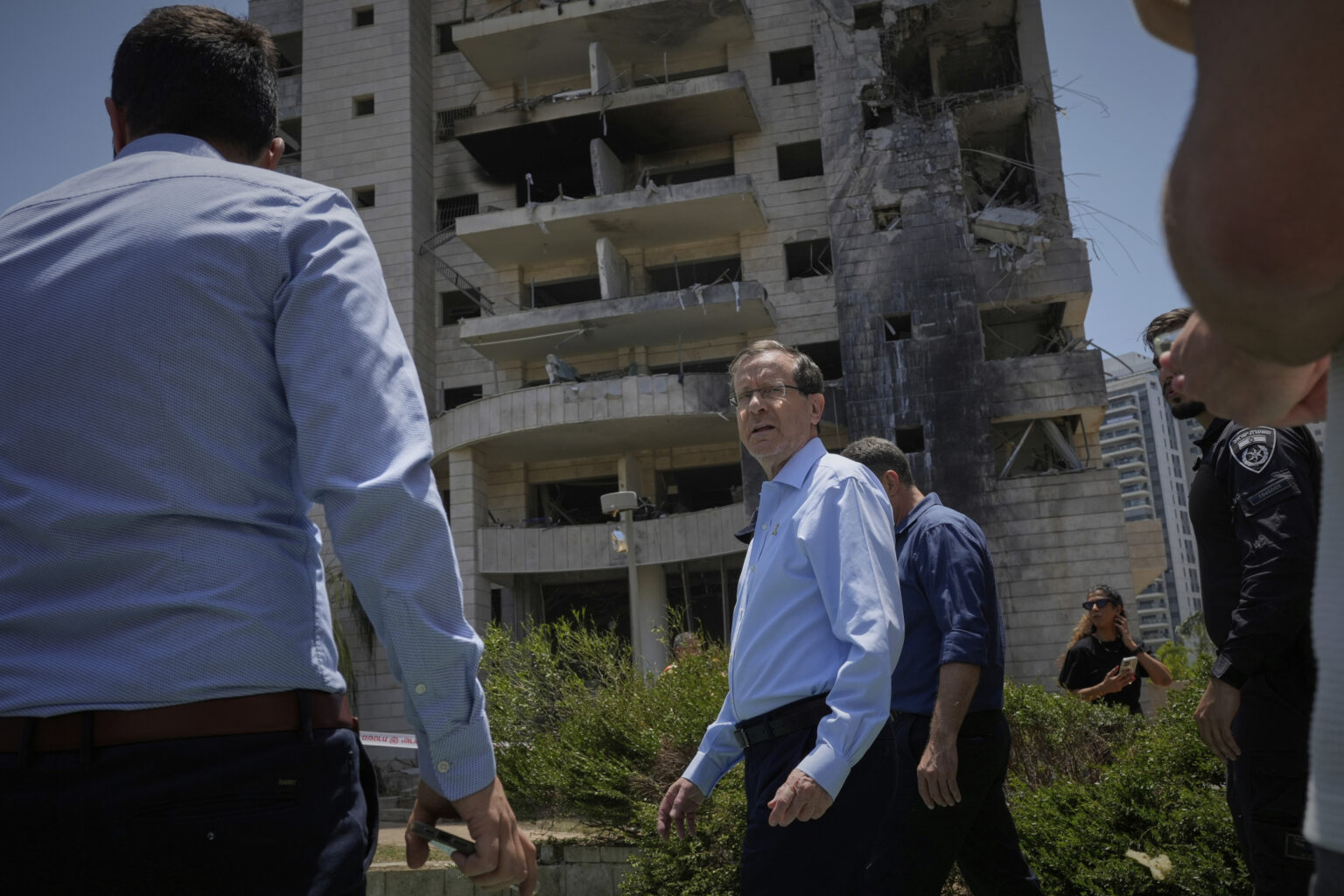The international community ignored Iran’s major underground nuclear facility of Fordow for years, Israeli President Isaac Herzog told Newsweek in an exclusive interview following U.S. strikes against three nuclear sites in central Iran overnight.
The Fordow nuclear facility, roughly 60 miles south of Tehran, was secret until 2009. Then-U.S. President Barack Obama said at the time it had jointly told the United Nations’ (U.N.) nuclear watchdog that Iran had for years secretly built up a nuclear site near the city of Qom.
Referencing the former president’s words more than a decade-and-a-half ago, Herzog said Obama “exposed” the existence of Fordow, “but then the world let it happen.”
“It’s ridiculous,” Herzog said. “The IAEA [International Atomic Energy Agency] declared that they’re non-compliant, and they’re lying,” the Israeli president added.
“And the world says, ‘Okay, what? What do we do about it?'” Referring to Israel, he continued: “Well, we have to defend ourselves, and we remove it.”
The U.S. launched strikes on Fordow, Isfahan and Natanz—three of Iran’s most significant nuclear sites—early Sunday local time, dubbed “Operation Midnight Hammer.”
Major U.S. allies expressed support for the American strikes on Sunday while urging Iran not to respond. Tehran had promised retaliation and “irreparable damage” if the U.S. attacked its nuclear facilities prior to the strikes. Abbas Araghchi, Iran’s foreign minister, on Sunday warned of “everlasting consequences” for what he termed “outrageous” U.S. attacks.
The U.S. entry into the war came after Israel carried out what it called a “pre-emptive” campaign against Tehran’s nuclear sites and personnel, as well as its ballistic missile and other military sites. Israel said Iran was getting close to having a nuclear weapon, which the U.S., and many of America’s allies, have said is unacceptable. However, Iran maintains that its nuclear program is for civilian purposes—not for weapons.
Iran launched waves of drone and missiles at Israel shortly after. Both Israel and Iran continued their attacks following U.S. strikes.
President Donald Trump hailed the strikes on Fordow, as well as the facilities at Natanz and Isfahan, as a “spectacular military success.”
“Iran’s key nuclear enrichment facilities have been completely and totally obliterated,” he added.
Israel, while not pursuing Fordow, has for over a week carried out extensive airstrikes on Iran’s nuclear sites, including Isfahan and Natanz, and killed a litany of senior nuclear scientists and generals. The U.S. military’s B-2 Spirit bombers, equipped with “bunker busting” GBU-57/B bombs weighing in at 30,000 pounds, were widely considered the only pairing able to take Fordow, buried deep under a mountain, out of the equation.
A U.S. submarine launched more than two dozen Tomahawk cruise missiles against the aboveground facilities at Isfahan around 5 p.m. ET on Saturday, just before U.S. aircraft entered Iranian airspace, General Dan Caine, the chairman of the U.S. joint chiefs of staff, said on Sunday.
Washington used deception tactics and a host of fourth- and fifth-generation aircraft traveling ahead of B-2 heavy bombers to sweep for Iranian fighter jets and air defenses, Caine added.
At 6:40 p.m. ET, the first B-2 dropped two GBU-57/B bombs at Fordow, followed by another site, the top general said. The rest of the munitions were dropped in the following 25 minutes, and Iran did not fire at U.S. aircraft traveling in or out of Iran, Caine added.
Experts and officials said on Sunday it was too early to tell exactly how much damage has been done to Iran’s network of nuclear sites. Preliminary assessments indicate all three facilities sustained “extremely severe damage,” Caine said.
In a Sunday afternoon Truth Social post, Trump pushed back against criticism from Republican lawmaker Thomas Massie of Kentucky, asserting that the U.S. had effectively “taken the ‘bomb'” away from Iran by targeting the three nuclear sites.
Massie has said that Trump needed congressional approval to launch the aerial attack.
During an emergency U.N. Security Council meeting requested by Iran, Secretary-General António Guterres appealed for urgent action to halt the violence and revive negotiations over Iran’s nuclear program.
“We cannot—and must not—give up on peace,” Guterres said, calling for a verifiable agreement with full access for U.N. nuclear inspectors to rebuild trust.
Stressing the stakes, he warned that the world faces a clear choice between the path of escalation and that of diplomacy. “We know which path is right,” he declared.
Read the full article here

